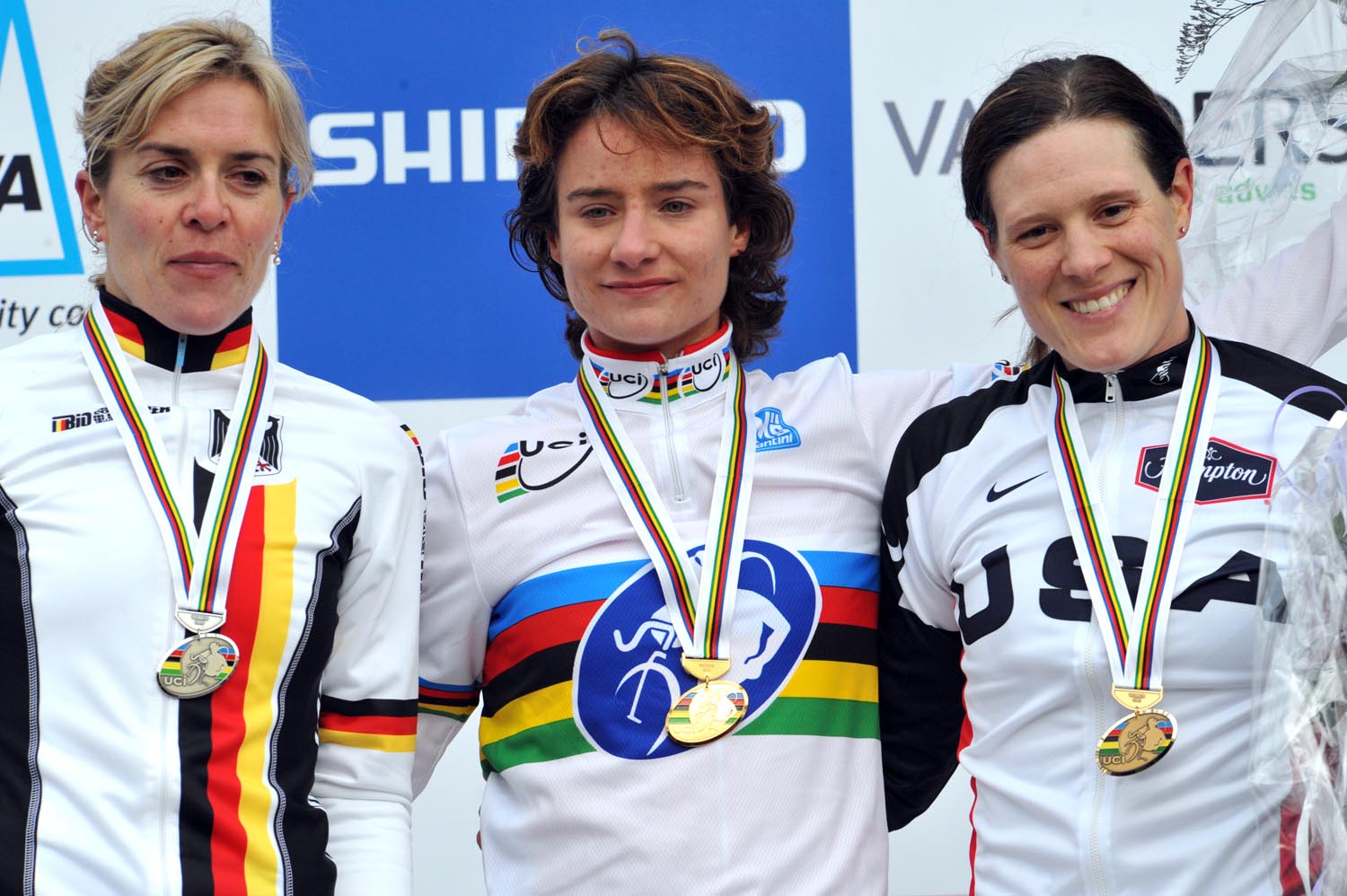Equal prize money for men and women at 2013 World Champs

The UCI made another step towards gender parity by agreeing last month to pay equal prize money at all future World Championships for men and women.
Road and cyclo-cross were the only two disciplines where this rule hadn't already been applied - although the new team time trial event will remain an exception as the men's event's prize is ‘topped up' by WorldTour funding.
The new ruling will be applied at next month's cyclo-cross World Championships in Louisville, USA.
A UCI spokesperson told Cycling Weekly that the new rule would see an overall rise in prizes paid out. "For the cyclo-cross Worlds in 2012 the UCI paid 16,500 Euros. In Louisville, the global prize money will be 20,168 Euros," he said.
On the professional men's road circuit, prize money, is generally shared amongst team mates and constitutes a fairly small proportion of a top rider's income. However, on the cash-strapped women's road circuit, prize money may play a more significant role in financing riders.
UCI President Pat McQuaid described the decision as "a simple but very important step forward in our effort to guarantee a healthy and fair future for our sport."
Related links
Get The Leadout Newsletter
The latest race content, interviews, features, reviews and expert buying guides, direct to your inbox!
UCI masterplan to save women's racing
British Cycling's women's academy in the pipeline

Thank you for reading 20 articles this month* Join now for unlimited access
Enjoy your first month for just £1 / $1 / €1
*Read 5 free articles per month without a subscription

Join now for unlimited access
Try first month for just £1 / $1 / €1
-
 Gear up for your best summer of riding – Balfe's Bikes has up to 54% off Bontrager shoes, helmets, lights and much more
Gear up for your best summer of riding – Balfe's Bikes has up to 54% off Bontrager shoes, helmets, lights and much moreSupported It's not just Bontrager, Balfe's has a huge selection of discounted kit from the best cycling brands including Trek, Specialized, Giant and Castelli all with big reductions
By Paul Brett
-
 7-Eleven returns to the peloton for one day only at Liège-Bastogne-Liège
7-Eleven returns to the peloton for one day only at Liège-Bastogne-LiègeUno-X Mobility to rebrand as 7-Eleven for Sunday's Monument to pay tribute to iconic American team from the 1980s
By Tom Thewlis